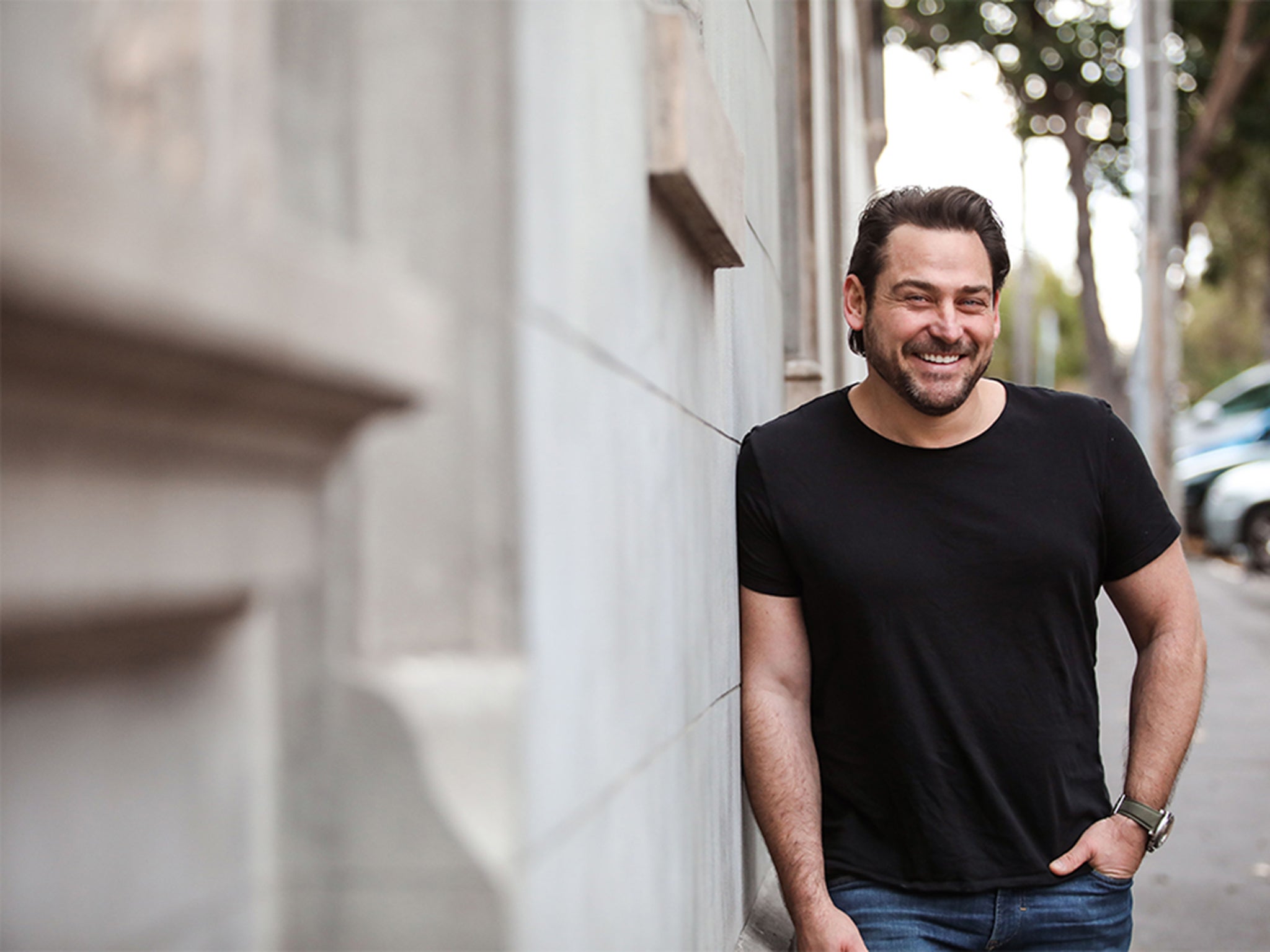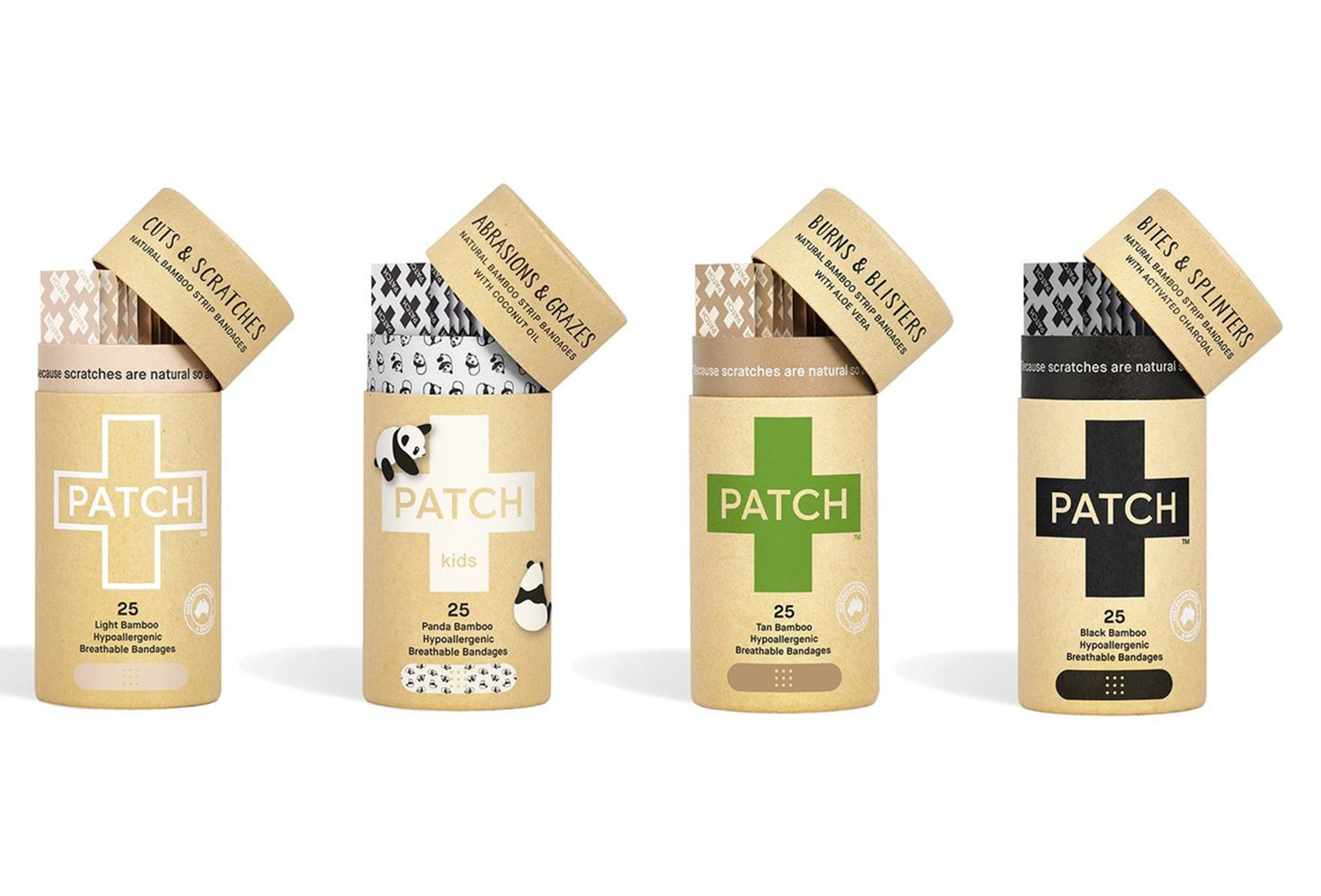How one father is making the world more sustainable one plaster at a time
James Dutton just wanted to create a dressing that didn’t give his son a reaction. Instead he’s created a gamechanging ethical and all-natural product almost by accident, says Martin Friel

UK consumers spend at least £41bn every year on ethical products and according to not-for-profit co-operative ethical consumer this represents a four-fold increase since 1999. It seems we have well and truly caught the ethics bug.
This growing popularity is reflected on our high street and digital shelves with everything from crayons to toilet brushes becoming ethical and sustainable. And more recently, sticking plasters have joined this ethical revolution.
That’s right – even the humble sticking plaster, a centrepiece of most people’s youthful adventure, does more harm than good. Well, it did until James Dutton stumbled upon its less-than-green credentials.
Dutton is the man behind PATCH Strips, a natural wound care company which sells plastic, latex and toxin-free plasters made from bamboo. They are everything you’d expect from a modern, ethics-conscious company in that there is no animal testing involved and the entire product and packaging is compostable.
But unlike many other modern brands, Dutton did not set out to create a sustainable product.
“Our number one priority was to fix a problem for our son and by doing that we have produced a product that is natural,” he says.
His young son Charlie’s skin reacted very badly to the chemicals contained in standard sticking plasters and, finding no appropriate alternative, Dutton decided to take matters into his own hands and create a plaster that his son could wear in comfort.
“My wife makes bamboo products with her sisters and had rolls of bamboo fibre at the house and I was listening to her about how it is naturally anti-microbial.”
That gave him his base product and he then moved on to the ingredient that causes most allergic reactions to plasters.
“I started mixing the adhesion up at home and tried different components on our son until I got to a stage that I was comfortable with the product.”
It’s such a little thing but people send in handwritten letters saying things like their son can now play in the playground
With no medical or scientific background (he left school as a carpenter), Dutton found that he had created a different kind of plaster using natural ingredients which didn’t produce nasty side effects. That was the primary motivation but those “experiments” on his son led him to dig deeper to understand how many other people suffered in the same way.
“At the time when I looked, roughly 20 per cent of the market had adverse reactions to the fabrics and adhesions and the real trigger point for me was the understanding that 20 per cent of the world is a pretty big number.
“It doesn’t take an entrepreneur that much thought when you see numbers like that,” he says.
And from there, PATCH Strips was born.
Since setting up in Melbourne in 2016, Dutton has sold over a million packets of plasters through 24,000 retailers in 35 countries, building a market cap of around A$25m (£13m).
A key part of that success has come by tapping into the growing and increasingly lucrative demand for ethical products, but this was never Dutton’s intention.

“We went into this with a clear business head rather than a ‘hippie’ focus,” he says.
He explains that the main purpose of what he was doing was to create a sterile medical device that was natural. However, in early versions, to ensure sterility, the plasters were covered with a piece of film that wouldn’t biodegrade like the bamboo plaster itself and this didn’t sit well with many.
“People loved the plasters, but they were asking why we had that piece of plastic when everything else is compostable.”
Eager to keep his fledgling customer base happy, Dutton set about finding a solution to this problem and found one that ensured the entire product was compostable. But it seems to have triggered in him a desire to embrace an approach to business that has ethics and sustainability at its heart.
One of the key steps towards that was to achieve B-Corp certification, independent recognition of the company’s ethical and sustainability credentials.
I’ve pulled stock out of a major retailer because they had our products wrapped in plastic on the shelves – they didn’t get the ethos of what we are doing
“It took about 12-14 months and it’s based on how you employ staff, how you treat the environment, how you run the office – they rate every aspect of your business. It was really difficult but made us stop and make sure we are doing everything right,” he says.
“I went for it as I knew we had a valuable proposition behind what we were producing. I researched the most ethical stamp we could get, and this gives us a lot of credibility in different markets around the world.”
And while this hints at an element of financial motivation behind the ethical drive, it is clear that Dutton is not simply tacking on credentials to market a product. He says he won’t tolerate anything that compromises the ethics that are so important to PATCH and its customers. Attention to detail is apparent all through the process.
For example, he insists that the bamboo is grown in its natural habitat without the use of pesticides or fertilisers and that the fibre used to create the plasters is created using a stone milling process rather than a chemical pulping method.
And this attention to detail even extends to how retailers stock and promote his products.
“I’ve pulled stock out of a major retailer because they had our products wrapped in plastic on the shelves – they didn’t get the ethos of what we are doing. And if a distributor uses plastic-coated printing stock for flyers, I’ll hit the roof. I’m a bit fanatical about these things now.”
So, with his sustainable and ethical business conversion complete, what is it that gets Dutton up in the morning?
“The biggest kick for me is the feedback we get from our customers. It’s such a little thing but people send in handwritten letters saying things like their son can now play in the playground. One customer told us their son couldn’t play outside before because as he has Lyme disease and can’t wear standard plasters, so he couldn’t go out and run the risk of getting a cut. Things like that motivate me,” he says.
That motivation has encouraged him to look at what other medical or first aid products could benefit from his natural approach and he reveals that the Nutricare brand, under which all the product lines sit, will start appearing on everything from sports first aid to dental care.
“It’s about eradicating the use of plastics in first aid and making things more natural – that is the focus first and foremost.”
And perhaps saving the planet one plaster at a time …
Join our commenting forum
Join thought-provoking conversations, follow other Independent readers and see their replies
Comments